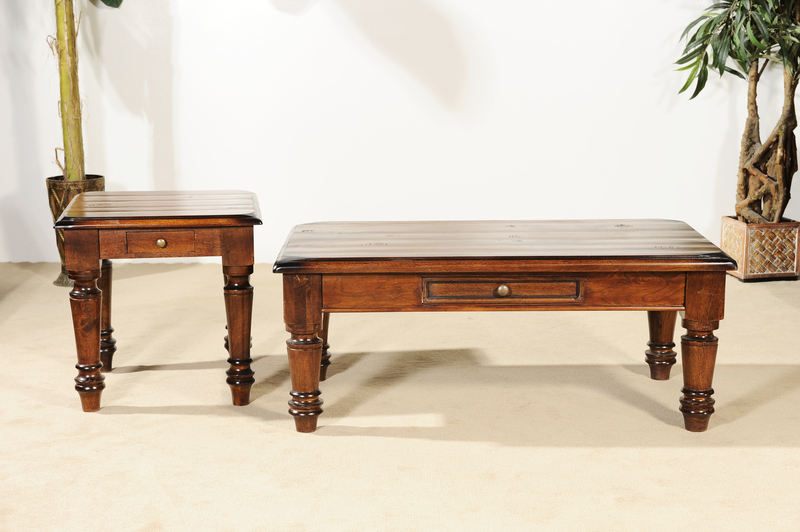How to Eliminate Bulky Waste Without Overspending
Dealing with bulky waste like worn furniture, broken appliances, old mattresses, and renovation debris can be a challenge--especially if you're trying to stay on budget. Fortunately, you don't need to spend a fortune to get rid of unwieldy items. In this comprehensive guide, we'll cover affordable bulky waste removal methods, along with tips to help you avoid hidden costs and stress.
Understanding Bulky Waste: What Qualifies?
Before we jump into the best ways to eliminate bulky rubbish economically, it's important to know what counts as "bulky waste." Generally, these are items too large for the regular garbage collection system, such as:
- Furniture - sofas, beds, wardrobes, desks, chairs, and tables
- Large Appliances - refrigerators, washing machines, ovens, and dryers
- Mattresses and Box Springs
- Carpets and Rugs
- Renovation Debris - cabinetry, bathtubs, shelves, doors, etc.
Certain items might require special disposal (like electronics, hazardous waste, or chemicals), so always check with your local waste management authority before proceeding.

Why Bulky Waste Disposal Costs Can Add Up
A lot of people are surprised to discover that eliminating large items can get expensive. Disposal costs hinge on factors like transportation, landfill fees, weight, and special handling. Luckily, by being savvy and resourceful, you can eliminate bulky waste without overspending. Here's how:
1. Take Advantage of Local Council or Municipal Bulky Waste Collection
Many cities offer scheduled bulky waste pickups--either for free or at a minimal charge. Here's what you should look for:
- Annual or Quarterly Collection Days: Some municipal authorities arrange bulky item amnesty days where residents can leave large items curbside for collection at no charge.
- Pre-scheduled Pickups: In other regions, you must call in advance to arrange a collection. Fees, if applicable, are usually much lower than those of a private service.
Tips for using your local bulky waste removal service without overspending:
- Check your city's website or call the public works department for details.
- Follow instructions about how to place items, allowable types, and weight limits.
- Book well in advance, as spots may be limited.
Pros and Cons of Council Collection
- Pros: Often free or low-cost; reliable if you follow guidelines.
- Cons: Strict rules; limited frequency; may not accept certain materials.
2. Donate Usable Items To Reduce Waste Disposal Costs
One of the easiest ways to eliminate bulk waste on a budget is to give gently-used items a new home. Consider:
- Charities and Nonprofits: Organizations like Goodwill, Habitat for Humanity, or The Salvation Army often accept furniture, appliances, and household goods.
- Shelters and Community Centers: Families in need may benefit from your unwanted items.
- Online Marketplaces: Platforms such as Facebook Marketplace, Craigslist, Freecycle, or Nextdoor are great for giving away bulky items for free.
Tip: Many groups offer free pickup of large items, saving you both time and money!
Reducing Bulky Rubbish Responsibly
Not only does donation help you save on bulky waste removal, but it's eco-friendly and helps those in need. Be sure to check each organization's policies on acceptable items and scheduling pickups.
3. Sell or Give Away Items Locally
If your bulky waste is still in usable condition, consider selling it or giving it away. This is a win-win: you reduce landfill use and might even make a little money! Here's how:
- Sell on Online Platforms: Try eBay, Craigslist, Facebook Marketplace, or Letgo. High-quality photos and honest descriptions help items sell faster.
- Give Away: Use websites like Freecycle, Buy Nothing, or OfferUp to connect with people seeking free furniture or appliances.
Bonus: You'll declutter and help out a neighbor in need--all at no cost!
4. Use a Skip Bin or Dumpster Bag--for Less
When you've got a significant volume of bulky rubbish--perhaps from a renovation, spring clean, or garage cleanout--a skip bin or dumpster bag offers flexibility and convenience. However, to avoid overspending:
- Choose the Right Size: Picking a bin that's too large means you'll overpay; too small, and you risk needing a second bin.
- Share the Cost: Split the rental with neighbors or friends who are also clearing out.
- Book Online: Many companies offer discounts for online orders.
- Avoid Overfilling: You'll face extra fees if bins are overfilled or contain prohibited items.
Pro Tip: Compare several local skip bin companies for the best rates and transparent pricing.
Bag-Style Dumpsters: A Budget Alternative
Big-box stores and hardware outlets now carry strong "dumpster in a bag" products. These are ideal for cheaper bulky waste elimination, and pickup fees are often lower than traditional skips.
5. Rent a Truck and DIY Disposal--for the Lowest Price
For the hands-on and thrifty, a DIY approach can be the most affordable way to eliminate bulky waste. Here's how:
- Rent a Van, Pickup, or Trailer: Enlist a friend and haul items to the municipal landfill or recycler yourself.
- Load Smart: Break down items to maximize your load and reduce the number of trips.
- Check Tipping Fees: Some landfills charge a minimum, while others charge by weight or item. Know the costs in advance.
Important: Always secure your load! Flying debris can be dangerous and lead to fines.
6. Hire a Professional Junk Removal Company (For Less)
Sometimes, the easiest way to eliminate large waste without overspending is to let professionals handle it. But before you book, try these savings tips:
- Get Multiple Quotes: Prices vary widely--compare at least three companies.
- Ask About Pricing: Some charge by volume, others by item or weight. Clarify what's included: loading, cleanup, disposal fees?
- Look for Discounts: Local companies may offer promotions or bundle rates.
- Combine Removals: Schedule your service with a neighbor or at the same time as other cleanup tasks.
You'll pay more for convenience, but with these strategies, you can still eliminate bulky rubbish affordably.
7. Repurpose or Upcycle What You Can
With a little creativity, many items destined for the dump can find a new purpose:
- Old Dresser = Storage Bench
- Pallet Wood = Garden Planter
- Worn Doors = Desk or Table
- Bicycle Tires = DIY Decor
Search online for upcycling ideas and tutorials. Not only will you save on disposal, but you might end up with a unique piece for your home!
8. Explore Manufacturer or Retailer Take-Back Programs
Some retailers accept old appliances, mattresses, and furniture for recycling when you purchase a replacement. Even if you're not buying anything new, some stores (especially electronics and appliance retailers) offer take-back programs at little or no cost.
Tip: Always ask about "haul away" options when shopping for large products--it could save hassle and money disposing of the old one.
How to Save on Bulky Waste Removal: Key Tips
- Plan Ahead: Don't leave it until the last minute, as this limits your disposal and savings options.
- Sort Items: Separate items that can be donated, recycled, or resold. The less you send to landfill, the more you save!
- Check for Free Community Events: Local governments and charities occasionally run free or affordable disposal events.
- Follow All Rules and Regulations: Avoid fines and extra fees by following guidelines for what, where, and how to dispose of bulky rubbish.
By combining these strategies, you can eliminate bulky waste without overspending and keep your home clutter-free without breaking the bank.

Frequently Asked Questions About Cheap Bulky Waste Elimination
Do garbage collectors take bulky waste for free?
Most regular garbage services do not accept bulky items as part of standard collection. However, some cities offer a limited number of free pickups each year on specific days or by request. Always check what your service includes before leaving items at the curb.
Can I put furniture or appliances on the street?
Different places have different rules. In areas with scheduled bulky waste pickups, placing items curbside is permitted--but only during designated times. Leaving items out in violation of rules may lead to fines, so be sure to confirm first.
What items require special disposal?
Hazardous items (paint, chemicals), electronics (TVs, computers), and medical waste require specific disposal methods--they cannot go in regular bulky waste collections. Contact local authorities for guidance.
Are donation centers picky about the condition of items?
Yes. Charities generally accept only gently-used furniture and working appliances. Broken, stained, or unsafe items are typically rejected.
Is hiring a junk removal company worth it?
Professional junk removal is worth considering if you have limited time, physical limitations, or a very large quantity of bulky junk. To reduce costs, donate or sell usable items first and request group rates when possible.
Final Thoughts: Clear Your Space Without Emptying Your Wallet
Whether you're cleaning out a garage, downsizing, or just getting rid of obsolete items, it's possible to eliminate bulky waste without overspending. By taking advantage of community programs, getting creative with donations or sales, sharing resources, and doing a little legwork, you'll save money and help the environment at the same time.
Make a plan, choose the right removal method, and turn bulky waste removal from a dreaded expense into a manageable part of maintaining your home--all without blowing your budget.